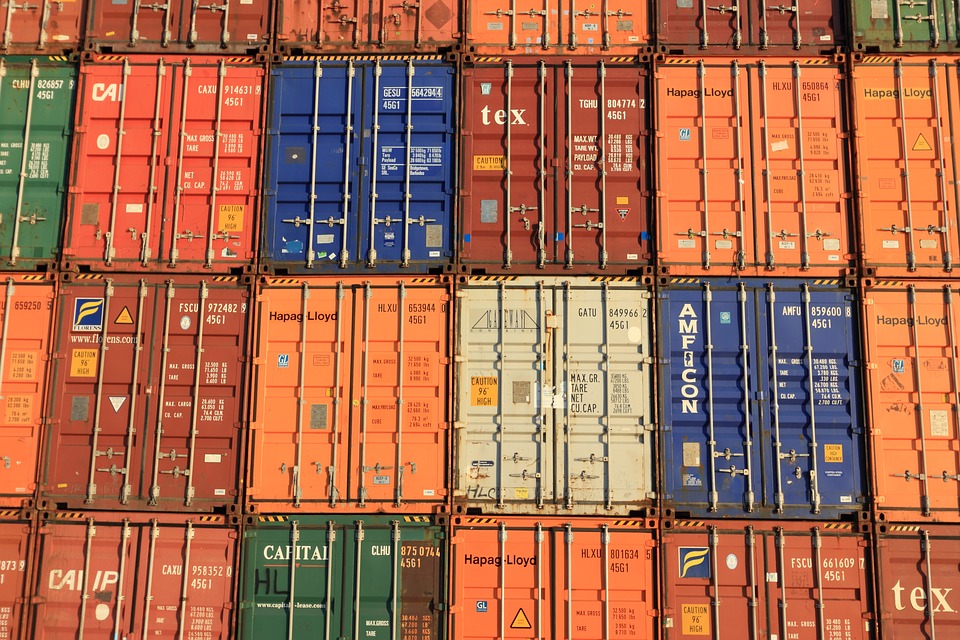
06/25/2019
If you follow the evening news, you've probably been hearing a lot about tariffs lately. Increased tariffs will have an impact on many industries, and trucking is no exception. Trucking companies are halting their expansion efforts, and some truckers are looking to change who they're driving for.
Trucking is worth more than $700 billion each year, and it employs an estimated 8.7 million people. Millions of people are wondering how the increase in tariffs will affect the industry. In this article, we'll give you an insider's look into international trade and the future of trucking.
What Are Tariffs?
Simply put, a tariff is an import tax. The US government taxes imported goods as a way of encouraging domestic companies to raise their production levels. There are tariffs on imported oil, steel, automobiles, and even watches.
Tariffs can be levied at a fixed rate or as a percentage of the total item price. For example, an American import company might have to pay $500 per metric ton of steel or a flat 20 percent rate on all imported cars.
Tariff rates can change from year to year and are defined by Congress. Occasionally, Congress will grant a sitting president the power to control the rates of international tariffs.
The higher the tariff, the less likely that product will be imported. All of the dire predictions about the trucking industry stem from one root cause: the United States is importing fewer goods from China because of higher import tariffs, which reduces the supply of goods for trucking companies to ship across the country.
Retaliatory International Tariffs
You might have heard rumors of a trade war on the horizon. But what exactly is a trade war?
When the United States penalizes foreign imports, the countries in question often impose their own tariffs on American goods, both to recoup some of their financial losses and to force the US to make a new trade deal and abandon its punitive tariffs.
How Serious Is This?
Although the news might sound alarming, trade wars rarely escalate to the point that they cause severe damage to the economy. When tariffs get out of control, the public inevitably pushes back. Consumers won't stand for a 25 percent increase in the price of clothing, shoes, or basics like toothpaste and shampoo.
Additionally, countries like Canada, China, and Brazil don't want to lose business from the United States. For instance, American companies import more than $500 billion in consumer goods from China each year. China doesn’t want to lose America’s business any more than American consumers want to lose access to affordable, imported products.
This means that trade wars are usually limited in scope. They can even have certain positive effects—heavy international tariffs could jumpstart the domestic automobile and electronics market, for instance.
Current Financial Outlook for Trucking Companies
The relationship between tariffs and trucking is complex, but aggressive import tariffs have the potential to damage the industry. At least in the short term, tariffs reduce the volume of goods in the country—and fewer goods to ship means less work for truckers, which can lead to layoffs.
Some companies have already reported lower earnings as a result of the threat of increased tariffs. JB Hunt, for instance, reported lower earnings than expected in the first quarter of 2019.
Mitigating Factors
Fortunately, the reduced supply of goods and overall economic slowdown are not the only factors affecting the trucking industry.
When the government announces that they’re raising tariffs on certain categories of goods, the change isn’t effective immediately. Last year, many Chinese companies rushed their deliveries to the West Coast in an effort to avoid paying the increased rate.
Many of these goods—most of which are nonperishables like toys, clothes and electronics—are still sitting in warehouses, awaiting delivery. Trucking companies can use this inventory to compensate for the reduced volume of goods that are being delivered to West Coast ports.
In the mid-term, other countries that are not affected by the tariffs may pick up the slack. This will mean changes for the trucking industry, and not necessarily for the worse. If the US starts to increasingly rely on imports from Europe, its ports on the East Coast will rise in importance. This could make life easier for many truckers, as these East Coast ports are closer to delivery centers in the Midwest than ports on the West Coast, allowing for much shorter routes.
Lastly, as mentioned, in the long term, tariffs can provide a boost to domestic industries, increasing the supply of American-made goods for transport. This in turn could also affect the routes that truckers follow, shifting them from major ports to industrial centers.
The Future of the Trucking Industry
The trucking industry is experiencing setbacks as a result of the increased tariffs, but overall, the outlook for truckers is positive. Despite the tariffs, experts are predicting a shortage of new truckers in the next five to 10 years. Although this labor shortage will pose problems for trucking companies, it is expected to translate to increased wages for truckers themselves.
If you'd like to read more about the trucking industry, news tied to American freight, and other similar subjects, don't hesitate to check out some of our other articles!






